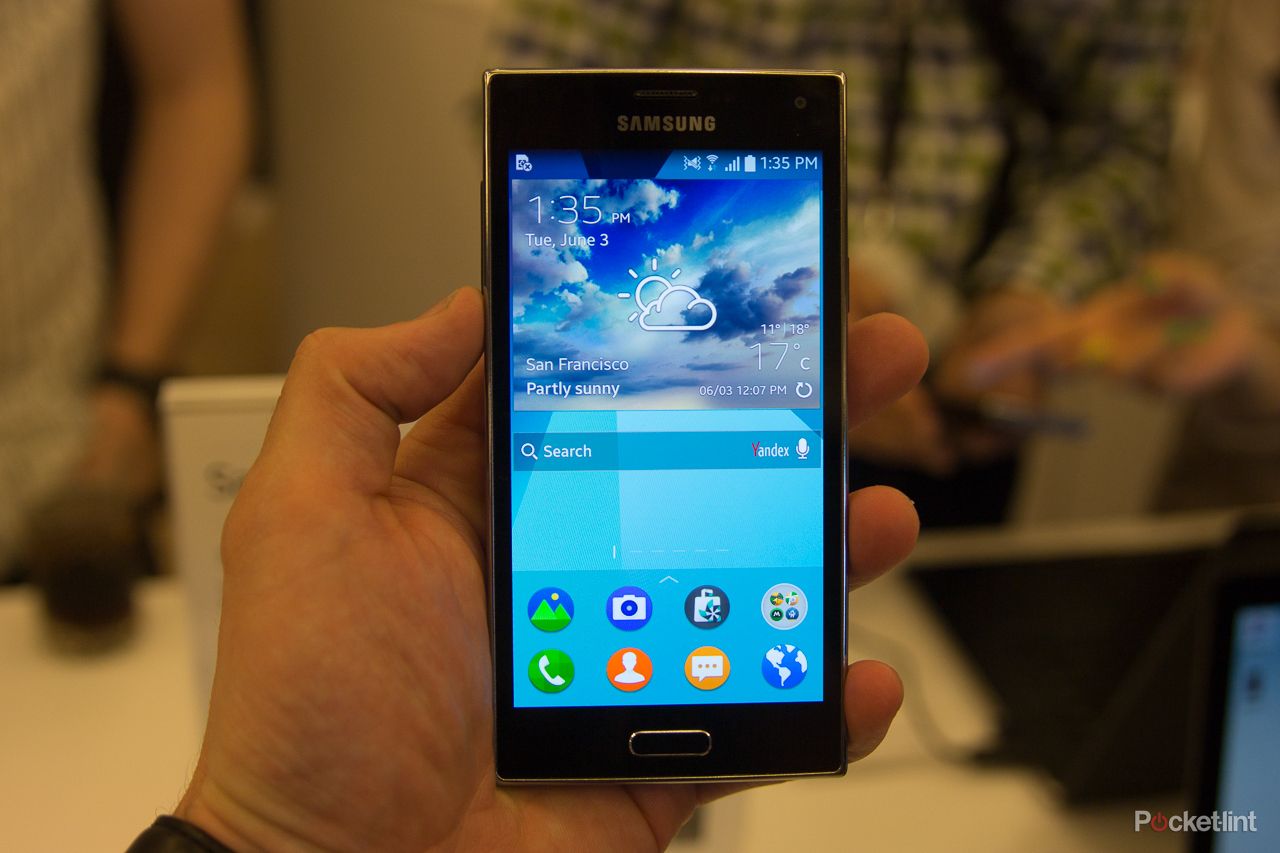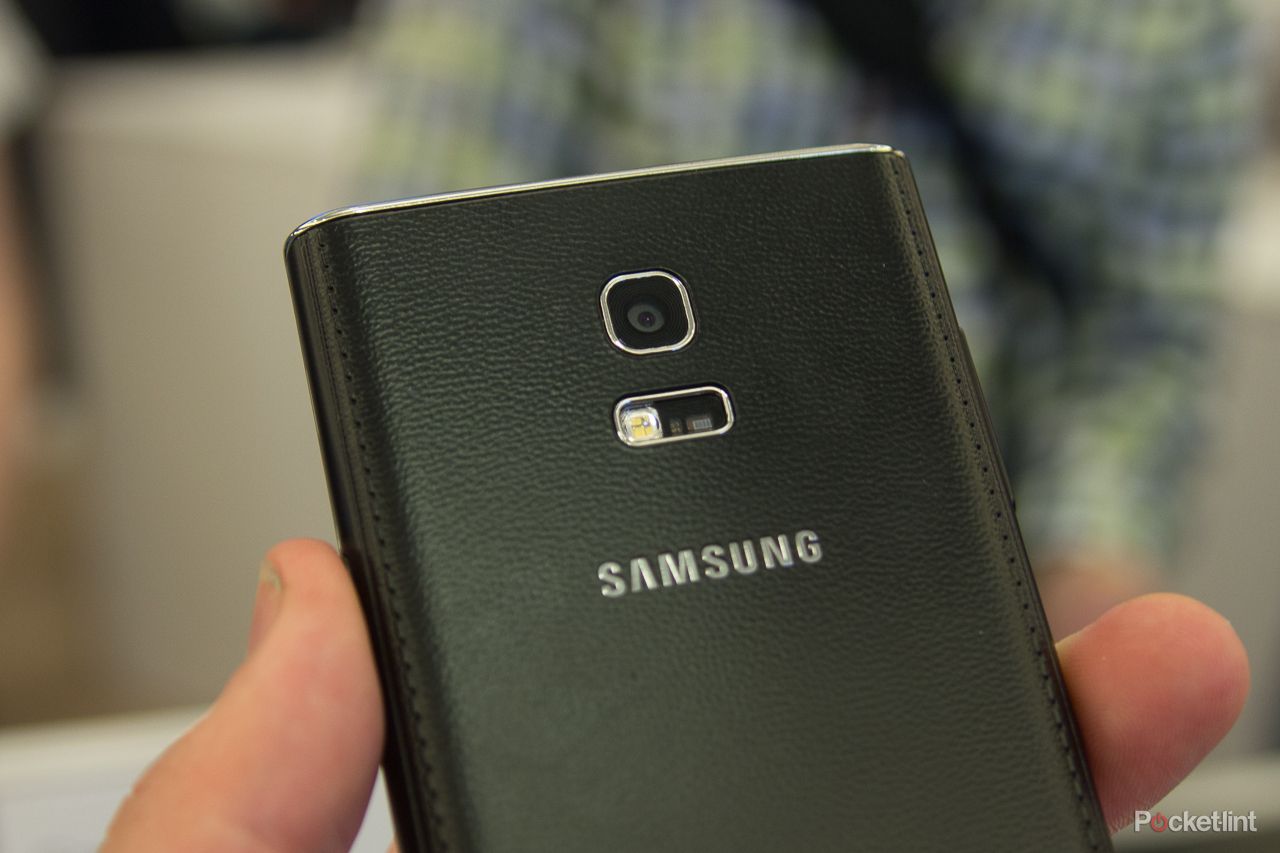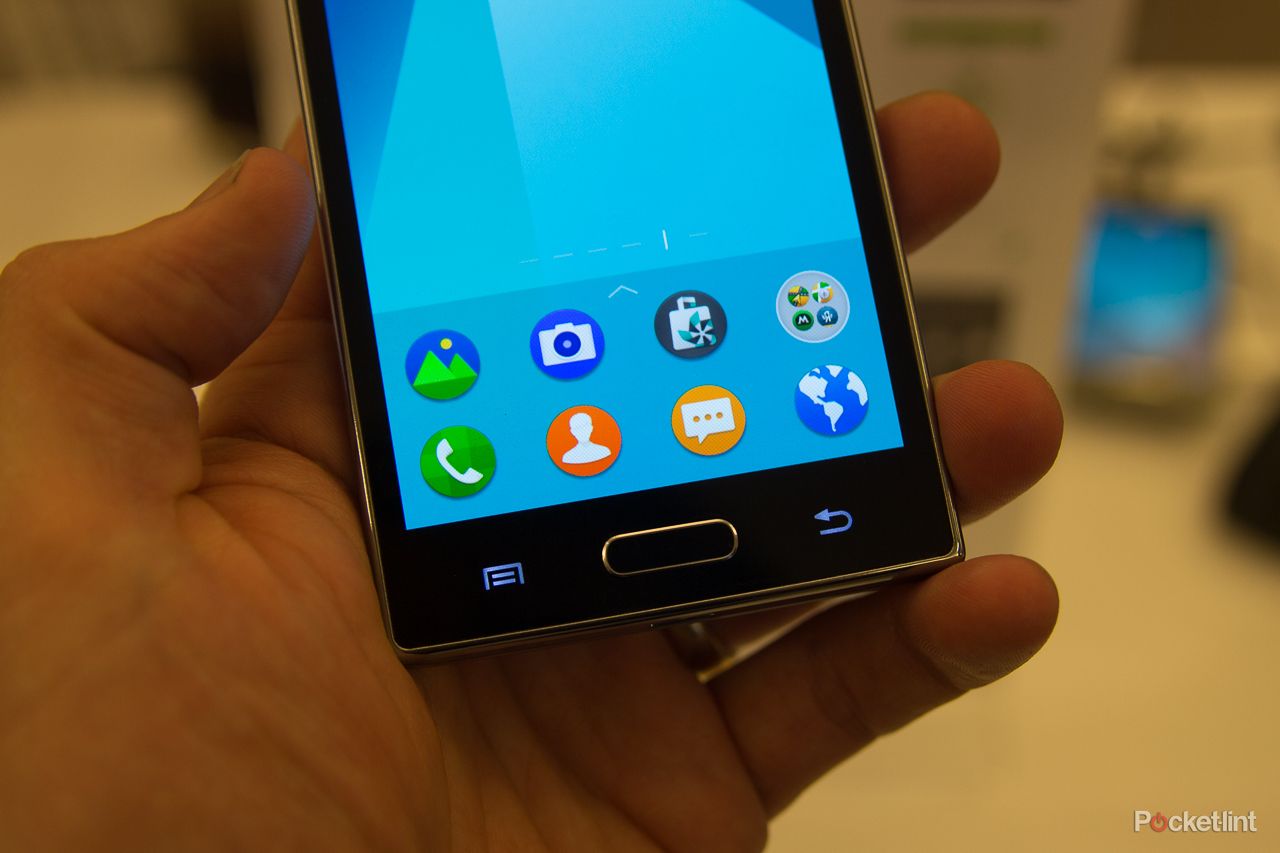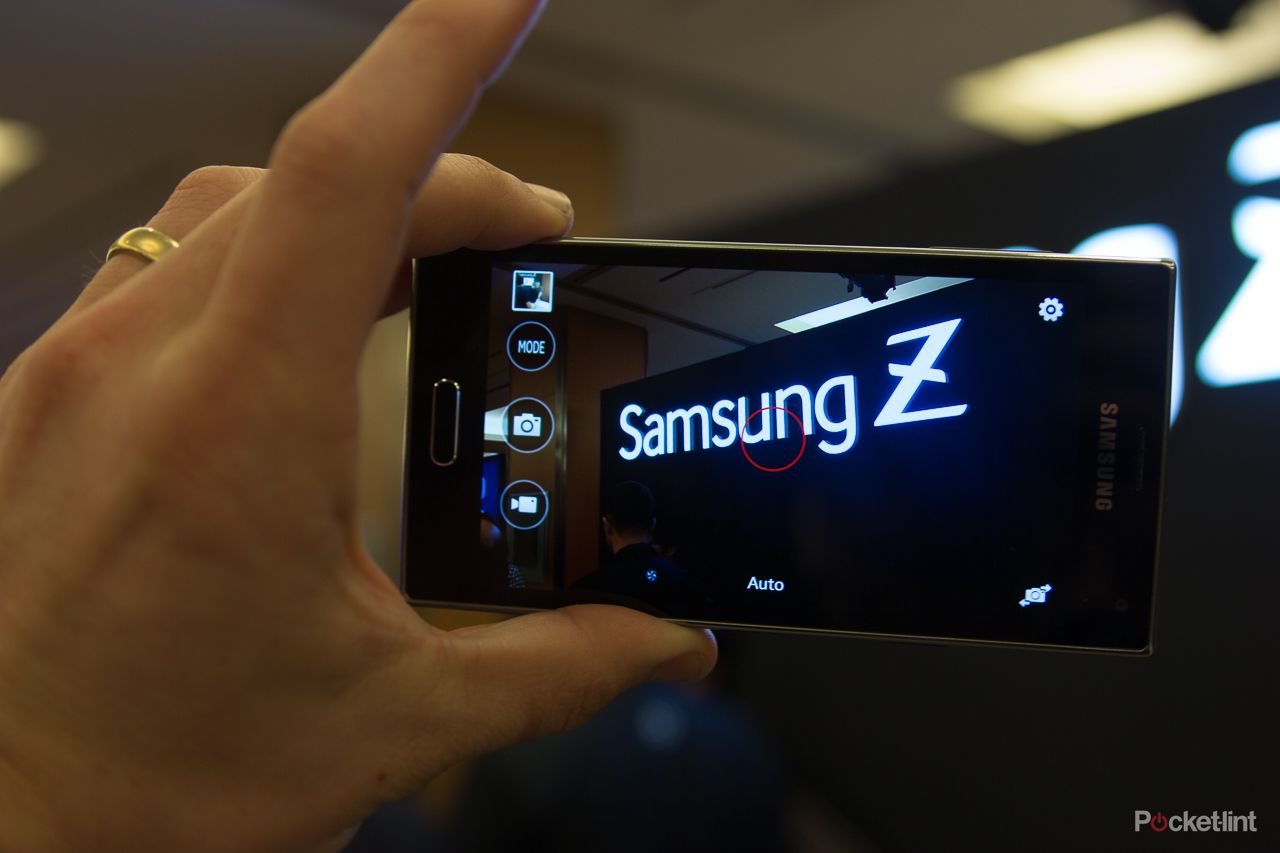The Samsung Z is the company's first Tizen smartphone that will be commercially available for the public to buy. And if successful, there are feelings that it could herald a new age for Samsung. So should Google be worried that it is about to lose its biggest Android partner? And is the operating system good enough to offer a viable alternative?
Design
The Samsung Z is rather square in its design approach with hard rather than curved lines. It is covered in the same leather stitch-style backing that we've come to expect from the company.
In terms of display you get a 4.8-inch HD Super AMOLED screen that helps the Tizen OS pop, and although erring on the side of over saturation in some instances, offers an enjoyable experience with good viewing angles.
Very much like Android, beneath the screen is a physical button akin to the Samsung Galaxy S5. Two further capacitive touch buttons, back and menu, appear and disappear when you touch the invisible area in which they sit.
If it wasn't for the square edges it would be easy to mistake the Samsung Z as being part of the Galaxy range with Android rather than Tizen at the helm.
Tizen power
For the Samsung Z, the company has opted to power the experience with its own Tizen OS rather than Google's Android. While having huge ramifications on what it can and cannot do, the experience before you start thinking about apps, is very, very similar.
READ: What is Tizen?
Powered by a quad-core 2.3GHz processor and 2GB of RAM, the operating system is incredibly responsive, more so than what we've experienced with the Samsung Galaxy S5 TouchWiz interface running KitKat. That responsiveness is best seen in jumping around the user interface, which is uncluttered and for the most part fairly clean.
Like Android, there is a focus on the apps in a grid system, as well as a number of widgets on the homepage. Just like Symbian eventually ended up being before Nokia ultimately canned it to go Windows Phone, Tizen emulates Android with aplomb.
Swipe down from the top of the screen, for example, and you reveal the all too familiar settings panel giving you quick access to things like Wi-Fi. Swipe up from the bottom of the screen and the app tray turns into the apps pane, while a swipe left or right reveals more "homepages" where you can pin widgets, shortcuts or app icons. To the layman this is Android.
But it is the sheer fluidity of all these actions that delivers plenty of promise for the mobile operating system. It's as quick and responsive at HTC's Sense ever was and doesn't suffer from the over animated experience of the latest version of TouchWiz.
Of course, Samsung has embellished the experience with a bit of its Android skin; TouchWiz.
Circular icons, a good smattering of "S" apps, and a clean interface all help define the experience, but because we've ever seen an early prototype Tizen experience before, it seems all together a natural rather than a cluttered experience.
It is as if the design team has forgotten the daily struggles of of trying to make everything different and standout in Android, and has delivered a unified experience in a device that comes across as singular in its design ethos. Samsung really should be proud of that achievement.
S apps
Like the company's Android smartphones, this Tizen smartphone is packed with S apps that are for all intent and purposes identical to their Android siblings.
There is S Health, S Planner, S Memo, S Voice, and S everything else you can thing of. And from a user interface and design perspective they are the same as you've seen on the Galaxy range of smartphones. It is at this moment you really struggle to notice the difference between the Samsung Z and any other Android-touting handset the company makes.
Tizen apps
Naturally, it is the variety of apps where the whole experience breaks down. There doesn't seem to be any, but then that will no doubt change over time.
Given that developers are already stretched developing for iOS, Android and Windows Phone, you shouldn't expect to get the latest and greatest apps on the phone any time soon.
The Tizen developer community is growing, but given the size of the developer conference in San Francisco, a room in the Hilton Union Square in San Francisco, the community is still very small.
That might change once Samsung starts expanding the platform further. Tizen is already on the company's Gear watches, in home appliances and a Smart TV prototype, but until a time when the platform has expanded a single mobile device, don't expect the app experience to be that acceptable.
First impressions
Samsung has confirmed that the Samsung Z will launch in Russia first, in Q3, and will then be rolled out to other territories if they are interested. There is no official confirmation on a US or UK release, and that strategy pretty much says it all.
Having spent some time with the new phone, our opinion is very much the same as most new devices that launch with a new operating system. The experience is a good one, but the lack of app support at present will put most people off.
What's interesting from Samsung's point of view however, is just as Nokia did, the company has created a viable alternative to Android that is good enough and solid enough to stand up on its own.
It will allow the company to flex its muscles against Google if it needs to, but like the later versions of Symbian, we suspect that while this will give Samsung the freedom to always have a backup plan, the ability to have an advantage over other operating systems without the support of thousands of developers is now not really a viable alternative to offer your customers.
That means that while we like the Samsung Z for its simplicity and clean approach, it doesn't really have the depth offered by the Android, iOS and Windows Phone operating systems.
For the near future, it will continue to be an also ran rather than a strong alternative, but as Facebook always says, you have to start somewhere and then continue to always move forward.
For Samsung, the Samsung Z shows that Tizen is a good starting point, but it still has a long way to go before it becomes a contender.




